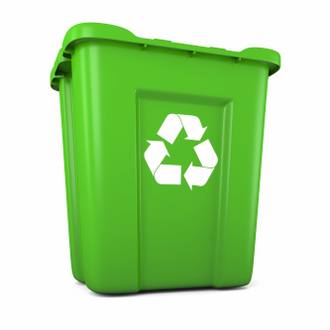What can I put in the recycling bin?
Index
Household recycling is now a very important part of residential waste disposal and most households practice recycling as part of their daily routine.

Back to Nature
With the world producing so much landfill and our consumption increasing annually, it has become more and more important for each and every household to do what they can to decrease their carbon foot print. This means that everyone needs to recycle what they can, when they can, to decrease the amount of rubbish they put into landfill.
A Place for Everything and Everything in its Place
Most households are issued with three different bins by their council. One will be for landfill, one for recycling and one for organic or green waste. The colour and size of these bins will vary from council to council as will pick up frequency and days. Some inner city buildings where there are a high number of residents will have different arrangements, check with your landlord or caretaker if this is the case where you live.
What goes in the Recycling Bin
- Glass bottles and jars – make sure you rinse them first. Wine and beer bottles.
- Cans – aluminium and steel, food and drink.
- Aerosol cans and tin foil.
- Plastic bottles – milk, juice, soft drink, detergent bottles and salad dressings.
- Ice-cream tubs, margarine and yoghurt tubs.
- Cartons – milk and juice cartons. Also cartons that contain soup and cooking stock.
- Cardboard boxes – from the pantry or from packing from other household goods.
- Newspapers and magazines – black and white or coloured, all can be recycled
- Paper – letters, envelopes, old correspondence, junk mail. Black and white and coloured are both OK.
- Telephone books and greeting cards – don’t forget the wrapping paper as well.
What goes in the Green Waste Bin
- Grass clippings
- Weeds pulled from your garden
- Leaves and twigs
- Garden prunings
- Small timber cut-offs, usually smaller than 30cm
- Uncooked vegetable peelings and cuttings
Stuff to never put in any of your bins
- Building or trade waste
- Asbestos
- Hot ashes
- Engine or car parts
- Old televisions or computer screens
- Soil, dirt of mulch
- Oils or paints
- Liquids, of any kind
- Syringes
- Medical waste or chemicals
Most recycle and green waste bins should be packed with loose items and shouldn’t contain plastic bags. If you place unrecyclable items in your recycle bin you can compromise an entire load of recyclable goods at the plant and end up increasing land fill. As most of us keep our recycle bins somewhere close to our house in-between council pick up, this means that if the bin develops a smell, we can smell it. Always rinse out containers before you put them in the recycle bin to keep bad smells at bay. Cardboard boxes can take up a lot of room so make sure you crush them down as much as you and crush down cans and cartons to make sure you use your space wisely. This is particularly important if you are having a party or if it is Christmas.
